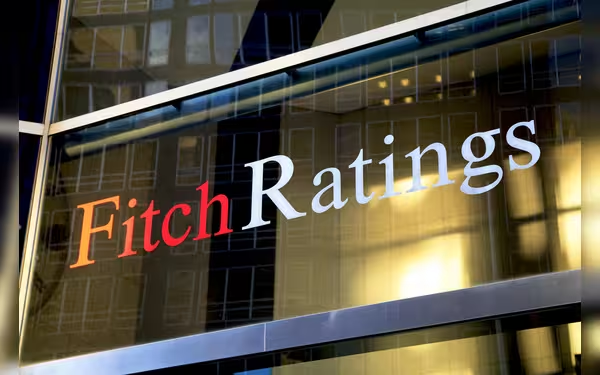Saturday, November 16, 2024 03:17 PM
Qatar Sukuk Issuance Surges 122% in H1 2024
- Qatar's sukuk issuances reached $500 million in H1 2024.
- Overall bond issuance in Qatar rose by 59% year on year.
- ESG sukuk accounted for 19.5% of Qatar's sustainable debt.
 Image Credits: arabnewspk
Image Credits: arabnewspkQatar's sukuk issuances surged 122% in H1 2024, reflecting growing interest in Islamic finance and sustainable investments.
In recent years, Qatar has made significant strides in its financial markets, particularly in the realm of sukuk issuances. Sukuk, often referred to as Islamic bonds, are financial instruments that comply with Islamic law, making them an attractive option for investors seeking shariah-compliant investments. The latest analysis from Fitch Ratings reveals that Qatar's sukuk issuances have experienced a remarkable surge of 122 percent in the first half of this year, reaching a total of $500 million. This growth is indicative of the increasing interest in Islamic finance within the region.
According to Fitch Ratings, the overall bond issuance in Qatar has also seen a substantial increase, rising by 59 percent year on year to $12.4 billion during the first six months of 2024. This upward trend in the debt capital market (DCM) is largely attributed to the government's ongoing debt repayments and the limited access to corporate DCM. The DCM serves as a marketplace for trading securities, such as bonds and promissory notes, which are essential for long-term funding by both companies and governments.
Qatar's DCM is noteworthy as it ranks as the third-largest in the Gulf Cooperation Council (GCC) region, following Saudi Arabia and the UAE. In July, Fitch reported that DCM issuances across the GCC are nearing the $1 trillion mark, with continued growth anticipated through 2024 and 2025. The report highlights that the majority of the DCM in Qatar is held by the sovereign, while most Qatari banks have issued senior unsecured debt to extend their maturity profiles and diversify their funding sources. However, corporate issuances remain relatively small.
By the end of the first half of this year, Qatar's DCM stood at $130 billion, unchanged from the same period last year. Interestingly, sukuk issuances accounted for 10 percent of the Gulf nation's DCM, a decrease from 13 percent in the same timeframe in 2023. Furthermore, the majority of the outstanding DCM is denominated in US dollars, making up 65 percent, while Qatari riyals account for 30 percent.
Despite the positive developments, Fitch noted that challenges persist within the DCM. The regulator has made efforts to advance the still-developing market, but limitations remain, such as the nascent riyal-DCM market and a concentration of the investor base in banks. Additionally, many corporates prefer bank financing over bonds or sukuk, which can hinder further growth.
In June, the Qatar Central Bank published its environment, social, governance, and sustainability strategy for the financial sector. This strategy aims to enhance sustainable finance and develop ESG (environmental, social, and governance) sukuk and bonds. The outcomes of this initiative include increasing transparency regarding the financial sector's role in national sustainability and providing guidelines for issuing sustainable products like loans, bonds, and sukuk.
According to Fitch, ESG debt in Qatar reached $3.8 billion by the end of the first half of this year, with sukuk accounting for 19.5 percent of this total. The inclusion of sukuk in the ESG framework is expected to attract investors who are specifically looking for shariah-compliant, sustainable options. These initiatives are designed to enhance Qatar's appeal to global investors who prioritize sustainability in their investment decisions.
Qatar's impressive growth in sukuk issuances and overall bond market activity reflects a broader trend towards sustainable finance in the region. As the country continues to develop its DCM and embrace ESG principles, it is likely to attract a diverse range of investors, further solidifying its position as a key player in the Gulf's financial landscape. The future looks promising for Qatar as it navigates the evolving financial markets while adhering to its commitment to sustainability.













